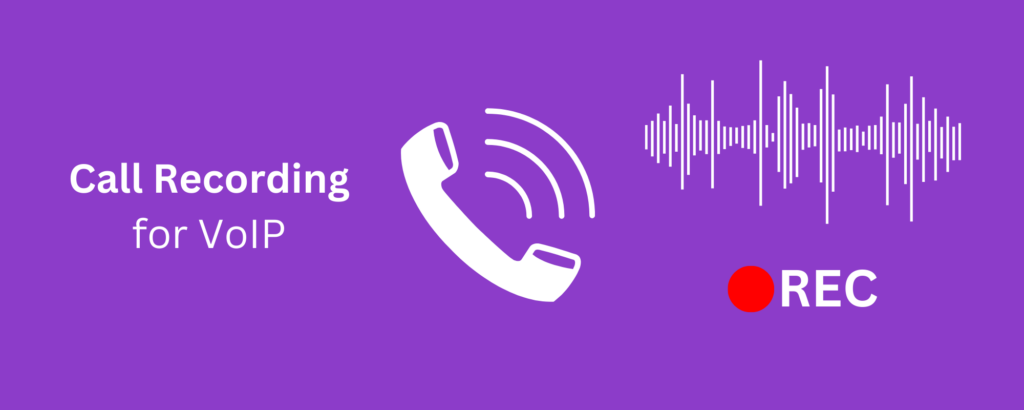Quick Menu

In today’s fast-paced business landscape, effective communication is key to success. With the evolution of technology, cloud-based phone systems have emerged as a powerful tool for enhancing communication efficiency and productivity. Among the myriad features offered by cloud phones, call recording stands out as a strategic asset that can provide businesses with valuable insights, improve customer service, ensure compliance, and drive overall performance. In this article, we’ll delve into the benefits of call recording for cloud phones and explore how businesses can leverage this feature to gain a competitive edge in 2024.
1. Enhancing Customer Service and Satisfaction:
Call recording enables businesses to monitor customer interactions in real-time and retrospectively. By analysing recorded calls, organisations can identify areas for improvement in customer service, address customer concerns more effectively, and provide personalised support. Moreover, call recordings serve as a valuable training resource for customer service representatives, helping them enhance their communication skills and better understand customer needs and preferences.
2. Improving Training and Performance Management:
Call recording facilitates employee training and performance management by providing concrete examples of successful interactions and areas needing improvement. Managers can review recorded calls to provide targeted feedback, identify coaching opportunities, and track performance metrics. Additionally, call recordings can serve as a benchmark for evaluating employee performance and ensuring consistency in service quality across the organization.

3. Resolving Disputes and Ensuring Compliance:
In industries where compliance and regulatory requirements are stringent, call recording is essential for maintaining legal compliance and resolving disputes. Recorded calls serve as an indisputable record of conversations, providing evidence in case of disputes or legal inquiries. Moreover, businesses can use call recording to ensure adherence to industry regulations, such as PCI DSS for payment card transactions or HIPAA for healthcare-related communications.
4. Gaining Valuable Insights and Analytics:
Call recordings offer a wealth of data that businesses can leverage to gain valuable insights into customer behavior, market trends, and operational efficiency. By analyzing call recordings and extracting key metrics, such as call duration, call outcomes, and customer sentiment, organizations can make informed decisions, identify emerging trends, and optimize their business processes. Additionally, integrating call recording data with analytics platforms enables businesses to generate actionable insights and drive strategic initiatives.
5. Strengthening Security and Risk Management:
Call recording enhances security and risk management by providing a comprehensive audit trail of communication activities. In the event of security breaches or fraudulent activities, businesses can use call recordings to investigate incidents, identify vulnerabilities, and implement corrective measures. Additionally, call recording helps mitigate risks associated with compliance violations, unauthorized access, and data breaches by ensuring transparency and accountability in communication processes.
In an increasingly competitive business environment, leveraging call recording for cloud phones is essential for organizations seeking to optimize their communication strategies, improve customer service, ensure compliance, and drive business performance. By harnessing the power of call recording technology, businesses can gain valuable insights, enhance employee training and performance, resolve disputes, and strengthen security and risk management practices. As we navigate the challenges and opportunities of the digital age, call recording remains a strategic asset that empowers businesses to thrive and succeed in 2024 and beyond.
Frequently Asked Questions
Call recording in VoIP refers to the capability of recording audio conversations conducted over internet-based phone systems. It allows businesses to capture and store calls for various purposes, such as quality assurance, training, and compliance.
Call recording in VoIP systems involves capturing audio data from both parties during a call and storing it in a digital format. This process is typically facilitated by the VoIP service provider’s infrastructure, which may offer built-in call recording features or integrate with third-party recording solutions.
Call recording in VoIP offers several benefits, including improved customer service, enhanced training and coaching opportunities, compliance adherence, dispute resolution, and valuable insights into customer interactions and business operations.
The legality of call recording in VoIP systems varies depending on jurisdictional regulations and applicable laws. In many regions, businesses are required to obtain consent from all parties involved in the call before recording it. It’s essential for businesses to familiarize themselves with relevant laws and regulations to ensure compliance when implementing call recording in VoIP.
VoIP service providers typically offer user-friendly interfaces or portals where businesses can access and manage call recordings. These interfaces may allow users to search, playback, download, and delete recordings as needed. Additionally, businesses can integrate call recording data with other systems or applications for further analysis and management.
